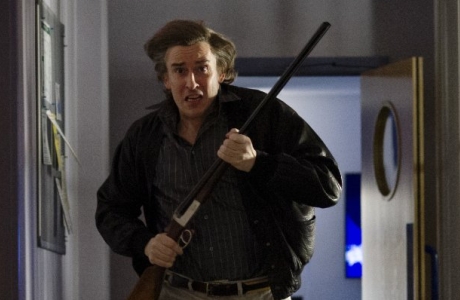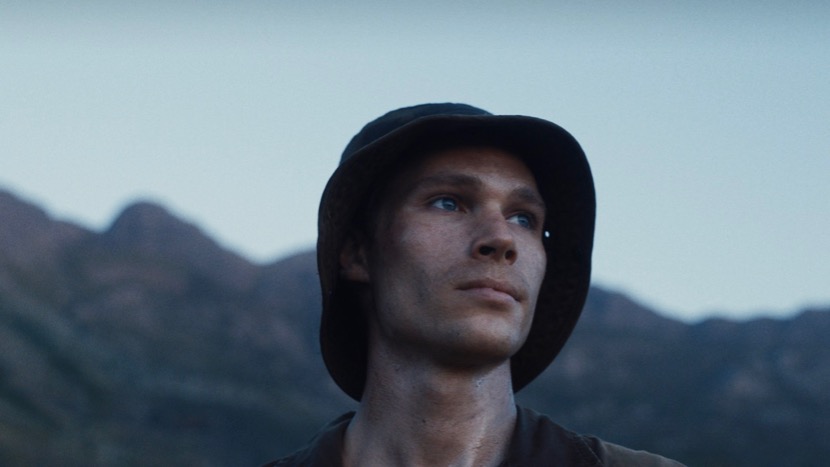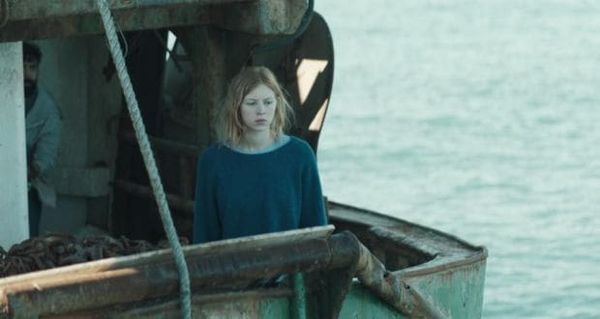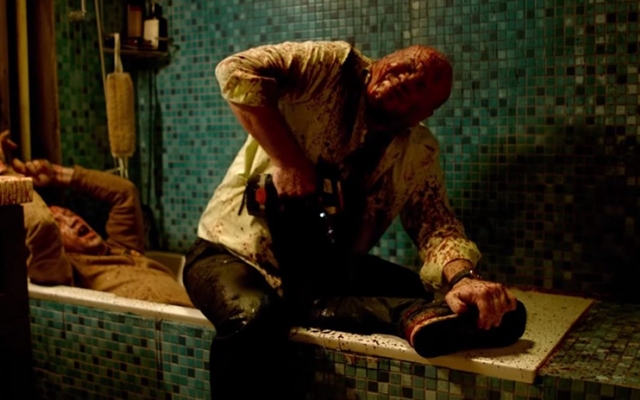Over the past decade, the Chilean director Pablo Larraín has established himself as just about the most exciting filmmaker working anywhere in the world. (There are even cinephiles who'll make you a case for his one American work-for-hire, 2016's Jackie, a film that struck these eyes and ears as stiffly inorganic.) Larraín has spent most of that time poking usefully around in his homeland's past: the legacy of the Pinochet years in Tony Manero, Post Mortem and NO, the later life of Pablo Neruda in the extraordinarily imaginative Neruda, the more recent issues afflicting the Catholic Church in The Club. With Ema, however, Larraín offers a character study of a none-more-contemporary figure: a polysexual millennial with peroxide-blonde hair and painful-looking piercings (Mariama Di Girolamo), living and working as a dancer on the bohemian fringes of trendy Valparaíso. An opening movement establishes that Ema is at once a supremely magnetic and graceful performer - poetry in motion - and, away from the studio, a hot mess, trailing an abandoned son, a rash of complicated relationships, and a close associate who's in hospital for some reason. Duality has long been central to Larraín's work: one thinks of the "good men" doing Pinochet's dirty work in the director's breakthrough features, or the mediocre cop jealously hounding the brilliant poet Neruda. Here, in a confoundingly singular film, he gives that duality a very modern, feminine face, and grants it space to bust an unexpected move or two.
Early on in Ema, it becomes clear Larraín isn't interested in playing by the usual movie rules, as he wasn't when he took on the fusty-sounding assignment of a biopic of Chile's premier poet and delivered the most exhilarating chase thriller of its year; his aim here is to convert either a manifesto on the permeable membrane between art and life or a programmatic narrative about the getting of wisdom into a fully immersive audiovisual experience. This means no set-up, no warning, no gentle easing-in: instead, we're tossed headfirst into the heroine's daily life, with all its knotty complications and contradictions, and forced, as she is, to figure some of them out as we go. What exactly is the nature of her relationship with the choreographer Gaston (Gael García Bernal), who seems so much older and wiser than her, so unlikely to stick his fingers into the fire? Why has she been removed from her kid, and what is that associate doing in hospital? How many lovers is it possible for a young woman to take without being hospitalised herself, at the very least with exhaustion? Why is she keeping a dead cat in her fridge, and is that some indicator of her inability to care for small creatures? This barrage of questions is prompted because both film and heroine float up before us like vast question marks: what is it? Who is she? Where are they both going? I guarantee you Ema will sail several stratospheres over some viewers' heads; others will grab at it, without fully grasping it. Even at the end of an initial viewing, I wasn't entirely sure: is this an ultra 21st-century parable of progressive parenting, or a vaguely conservative thriller on the same subject? Is it a little of both?
Let this stand as notification that, for the longest while, Ema threatens to be Larraín's airiest, most vaporous film yet. With its neon lighting and electro soundwashes (care of Nicolas Jaar), it's the closest this director has come to Nicolas Winding Refn, which I can't at this stage offer up as a compliment; it's also a movie that will draw deeply on the viewer's reserves of tolerance for spending time around twentysomethings with preposterous haircuts. Larraín can cut through this hipster veneer with humour, granted. After Ema pours out her feelings for Gaston, the choreographer's first, slightly stunned response is "What if we have a quickie?"; another funny sequence finds the troupe's female dancers ganging up on a handsome bartender. Yet we're always aware of watching fleeting, evanescent pleasures, colourful traces of the rosebuds Ema has taken it upon herself to gather while she can. Larraín's very best films - which, not coincidentally, happen to be those he's scripted himself - have been grounded by some wider sense of history or politics. Ema has Gaston around to remind her of her past, yes - Bernal tails Di Girolamo as he once did Luis Gnecco's Neruda - and she scatters telling crumbs of biography: a dead father, a fussing mother. Mostly, however, Larraín merrily skips along in the footsteps of a heroine determined to live in the moment, and there are points amid the conspicuous posethrowing where you feel Ema drifting into artful inconsequentiality, as if it were a photoshoot that had absconded from the pages of Vice magazine and somehow landed itself a distribution deal.
Still, however haphazardly, film and heroine do develop, go somewhere surprising. If the manifesto Larraín is setting out here needed words and phrases to go along with its ever-arresting images, then - and here's where Ema does appear sincerely progressive - they would counsel being flexible and keeping an open mind. Going with the flow, perhaps: the same flow that has carried this filmmaker from Chile to North America and back, that shifts his films between tragedy and comedy, the past and the present, and that leads Ema to answer "Freedom" when asked what subject she enjoys teaching during an unlikely job interview. I say unlikely, as some of the befuddlement and exasperation Ema is bound to provoke can be attributed to an organising figure who could scarcely be less organised: the enigmatic Di Girolamo is entirely right for the role of someone who hasn't worked herself out yet, a tightly wound ball of potential energy bouncing off everyone and everything in sight. (Where she stops, nobody knows.) I spent much of Ema wondering how compelling this essentially blank-faced, vaguely melancholy performer was in and of her own right (would you glance twice at her in another movie, or on a Camden sidestreet?), and how much was the construct of a director doing his level best to find his discovery fascinating at every turn. That may be Ema's one question to stand as entirely moot, as whenever filmmaker sets actress to dance at twilight on a rooftop overlooking the old port, or sends her out to take a homemade flamethrower to an old banger, Di Girolamo cannot help but light up the screen and set the night ablaze with possibilities. In real life, you'd be lucky indeed to meet a woman with that ability, let alone remain in her orbit for a full 100 minutes.
Ema streams via MUBI UK from tomorrow.













